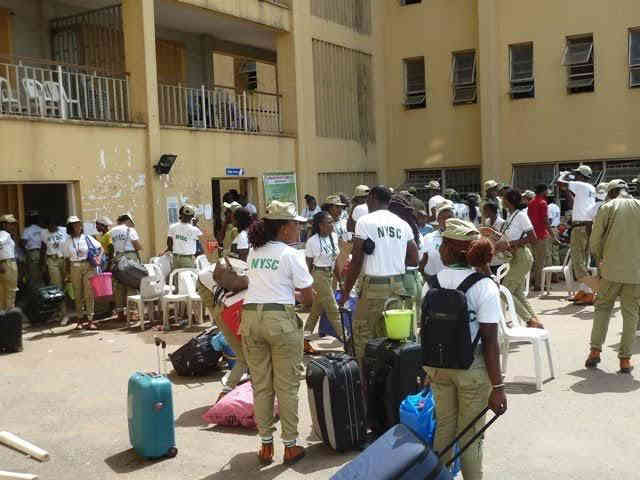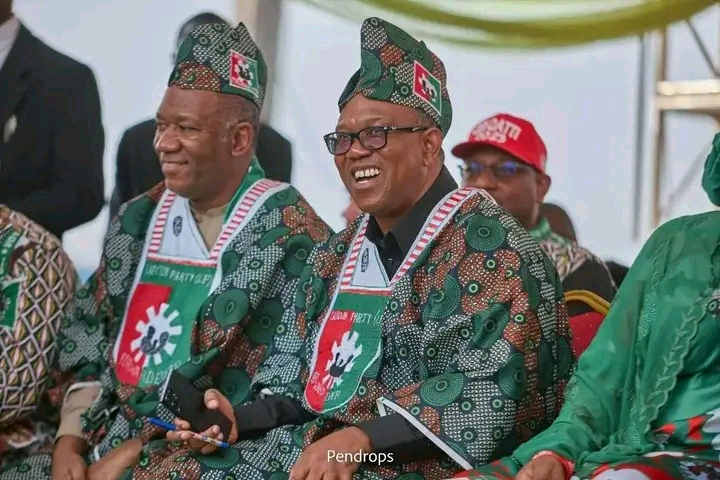Peter Obi is projected to win the February 25th presidential election with over 73 percent, according to new survey
A global collective of Nigerian professionals (with diverse political persuasions) committed to good governance through superior values and public enlightenment has said that its survey has showed that the Labour Party (LP) Presidential Candidate, Mr Peter Obi, will win over seventy-three percent of the votes cast for the February 25 presidential election.
READ ALSO: Peter Obi might win in Anambra state – Soludo
The group which goes by the acronym, TEIC conducted its survey of the major contenders, saying that its objective was solely to determine the impact of the top four presidential candidates on popular culture, public value systems, perceptions and emotions so far.
TEIC in a report obtained by News Express on Friday said: “We did not set out to predict voting intentions in the forthcoming February elections. Our objective was solely to determine the impact of the top four presidential candidates on popular culture, public value systems, perceptions and emotions so far. You can call it a likeability test or a measure of the candidates’ emotional connection with the public.
“Voting intentions are an entirely different and more complex phenomenon. It is possible to like someone but not vote for them – if for instance they are considered inexperienced or otherwise unsuitable for a role. So, likeability may play a part in deciding who people ultimately decide to vote for, but it is not the only determinant of voting behavior.”
READ ALSO: Big Win for Peter Obi as Prominent Nigerian monarchs Throws Weight Behind Him
Speaking on a subheading, “Survey Question & Rationale”, it said: “A single question was posed to all respondents in this survey: As a parent, which of these 4 Presidential candidates would you want your child to grow up as?
“It is assumed that Nigerian parents (as parents elsewhere) would want the best for their children. Therefore, they would want their children to grow into the personality of candidates who most closely approximate their perception of a role model.
“The question may also suggest, “pride in association”, “character dispositions”, “compatible family values” or “sense of accomplishment” on the part of respondents.”
On Methodology & Data Gathering, the group said that the study was conducted using WhatsApp Poll.
It added WhatsApp Poll is a simple, digital, smartphone-based survey tool hosted by the WhatsApp messaging platform from Meta. It delivers instant, real-time results.
“Our question was posed on WhatsApp group platforms with exclusively adult Nigerian memberships. Such memberships were required to be multi-ethnic, multi-religious and multi-professional. In other words, they must have cultural diversity. Ten (10) groups that met these criteria were purposively selected by our researchers based in Abuja, Lagos, Kano and New York (to cover Diaspora Nigerians). But the locations of members of those chat groups were not limited to the cities mentioned. On the contrary, since chat group membership is virtual, they were most often widely scattered across Nigeria and the globe. Participation was voluntary.”
READ ALSO: Primate Ayodele Speaks On Peter Obi Winning 2023 Presidential Election
On Results, TEIC said that a total of 156 correctly filled responses was obtained during the period January 11 – 14, 2023, adding that Data collation, analysis, and reporting was done between Jan 15 and 17, 2023.
It said that results showed as follows:
Candidates’ Name Raw Score %
Bola Tinubu: 20 (12.8%)
Atiku Abubakar: 10 (6.4%)
Peter Obi: 114 (73.1%)
Rabiu Kwankwaso: 12 (7.7%)
Total = 156 (100%)
“The result indicates that as of mid-Jan, 2023, a majority (73.1%) of respondents would like their own children to turn out like Peter Obi of the Labor Party. Bola Tinubu of the APC, Rabiu Kwankwaso of the NNPP, and Atiku Abubakar of the PDP follow in descending order.
“The Labor Party candidate made a significant showing in all 10 WhatsApp groups surveyed. He swept the stakes in some and shared the spotlight with his rivals in others. Other candidates turned up fairly strong in some groups but fizzled out in others.
“Placed side-by-side with earlier published poll results (which measured a different variable – voting intentions), we see some consistent patterns: Peter Obi leads, followed by Bola Tinubu. But the gap between this two appears to be getting wider in Obi’s favour. This could mean that Peter Obi has more people swayed by his personal charm or soft power than by his political persuasions.
“At the other end of the table, Rabiu Kwankwaso of the NNPP is ahead of Atiku Abubakar of the PDP by a slight margin in this survey. This represents a change in fortunes since in earlier published polls Atiku Abubakar is consistently reported to be ahead of Rabiu Kwankwaso (on voting intentions). How significant might this be – statistically and on election day? Clearly, more work needs to be done.”
On Limitations the report said:
“With a sample size of 156 persons only, drawn from 10 online chat groups, and among populations of smartphone users only, this survey is definitely too small to claim accuracy.
“Many members of WhatsApp groups surveyed did not to participate. It could be that they did not see the survey questionnaire, are undecided, do not want their children to be like any of the four candidates listed, or do not want to disclose their preferences. So, there are still many whose views are not captured here. A much larger sample, with wider spread, and including nonsmartphone users, might have yielded significantly different results.”
In its conclusion, TIEC said that what they have presented is at best a snapshot of current reality, saying that It should be considered in conjunction with other survey results, as a qualitative indicator of public perceptions of candidates’ personal charm at the time of study.
While noting that in politics, things can change quickly, TIEC expressed hope that there were sufficient outlines in snapchat to help candidates and their campaign managers to fine-tune their strategies for the final weeks of electioneering.







